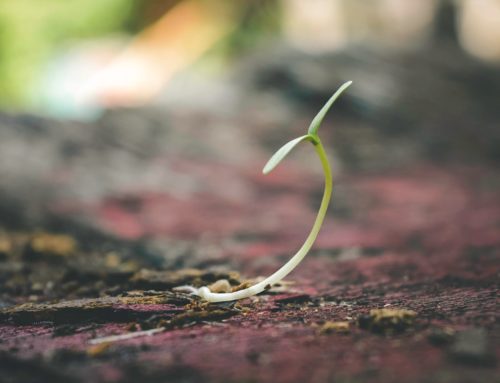One of the vivid memories I have of my time on the Island of Iona in Scotland is what happened every Saturday morning. This was the time when all the guests of the Abbey left after having stayed for a whole week. After breakfast and morning prayers, we all walked down to the ferry carrying bags and chatting as we ambled down through the village, whether it was raining, blowing a gale or calm and sunny. When the ferry arrived all the guests rushed on with bags and lots of memories of the week, and as the ferry moved off we waved; we waved until we couldn’t see them over the other side of the Sound. Then we would walk back to the Abbey for morning tea and the weekly clean-up to prepare for the next round of visitors who would come later that morning.
The practice of accompanying people to their point of departure and waving them off is an ancient practice on Iona. It goes back to Columba himself.
When the Celtic monks left on missionary forays into the mainland in their fragile coracles, the rest of the community would walk with them down to the beach singing the Iona Gloria which they sang until the tiny boat could no longer be seen on the horizon; it was in fact an act of blessing.
I was about seven when my father took Long Service Leave from his parish and took up the role of Ship’s Chaplain bound for England. He was heading to Iona in Scotland for the opening of the rebuilt Abbey. What I remember is seeing my father aboard the ship throwing streamers down to the wharf which we caught and held until they broke as the ship sailed.
I’m sure that you will have memories of farewells like this. I am firmly convinced that how we say goodbye, how we leave is very important, whether it be leaving a job and moving on to another position, or retiring; whether it be saying goodbye to a friend or family member going away overseas on holiday or study, or whether it be dealing with the loss in death of those we love. When we deal with departures well it can help us move on.
In John’s Gospel Jesus spends a lot of time preparing his disciples for the day when he will be physically absent from them. So last week we heard Jesus assure them that they will not be left abandoned. On the contrary they will be given another helper, another advocate to be with them forever. What’s more, the Comforter they will be given, the Holy Spirit, will re-connect them with Jesus and remind them of all that Jesus taught them.
I watch my daughters doing a similar thing with their children, preparing them for events to come and what they might expect, so they are not unprepared for what will come.
However, its inevitable that when the crunch comes we are often unprepared.
That’s what we see in our reading today from the Acts of the Apostles when the disciples watch as Jesus leaves them and we are given a very poignant image of them staring up into the clouds, bereft.
Its then that two men in white robes address them saying, “Why do you stand looking up toward heaven?…” They were being reminded of Jesus’s words that though they will not see him in the flesh, he will be with them through the power of the Spirit…and he has a task for them, and needs them and us today to share his vision and his love.
In the Ascension Jesus goes away in order to be present to us in every time and place through the power of the Holy Spirit.
Peter





